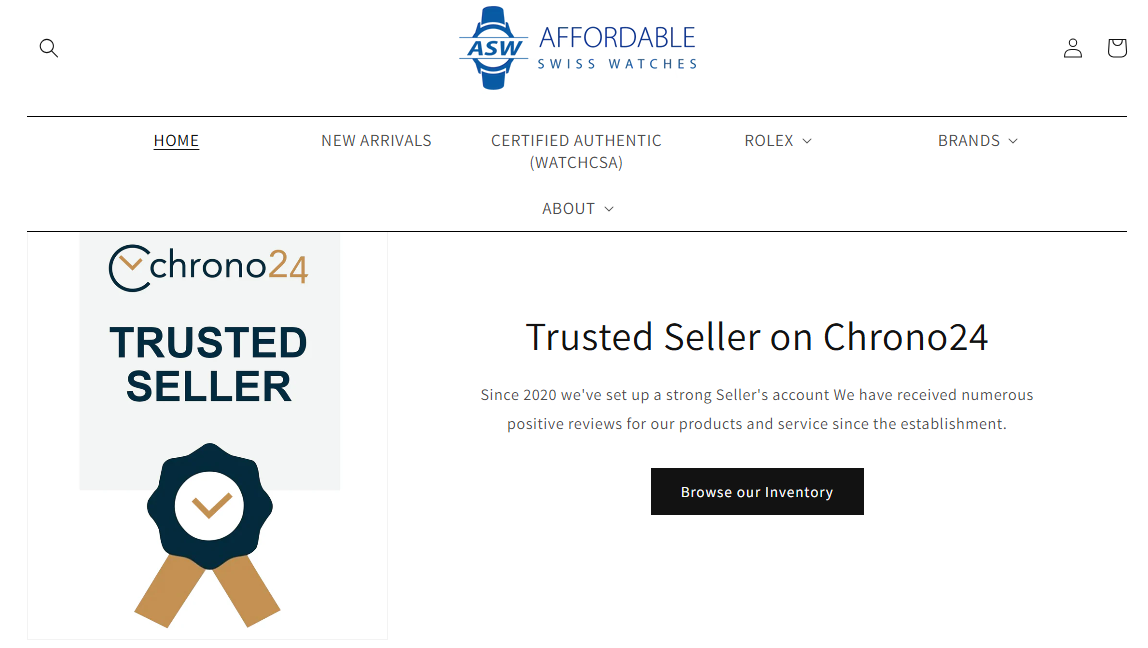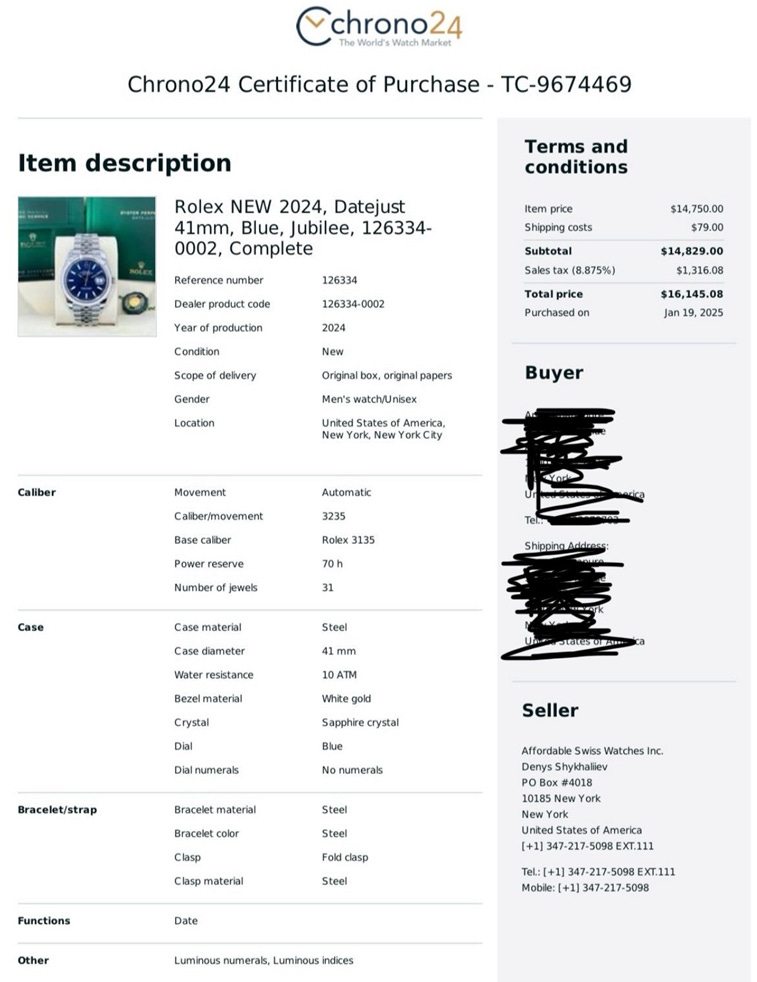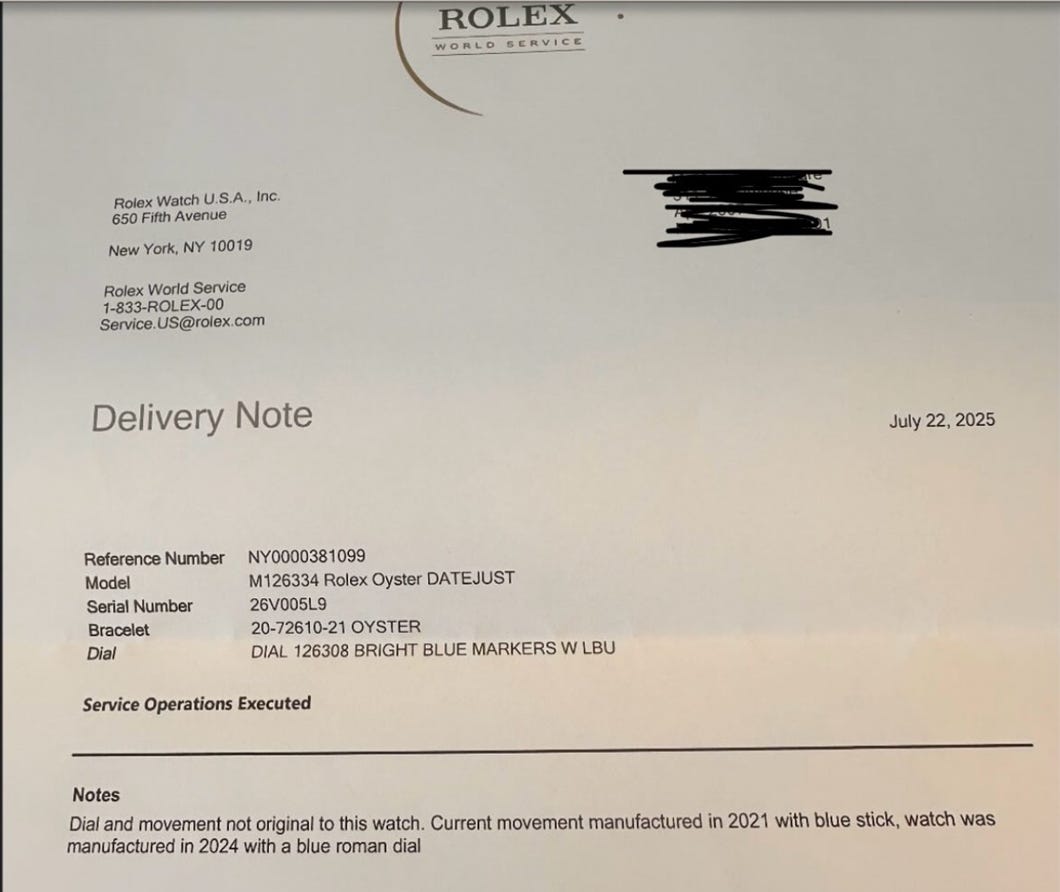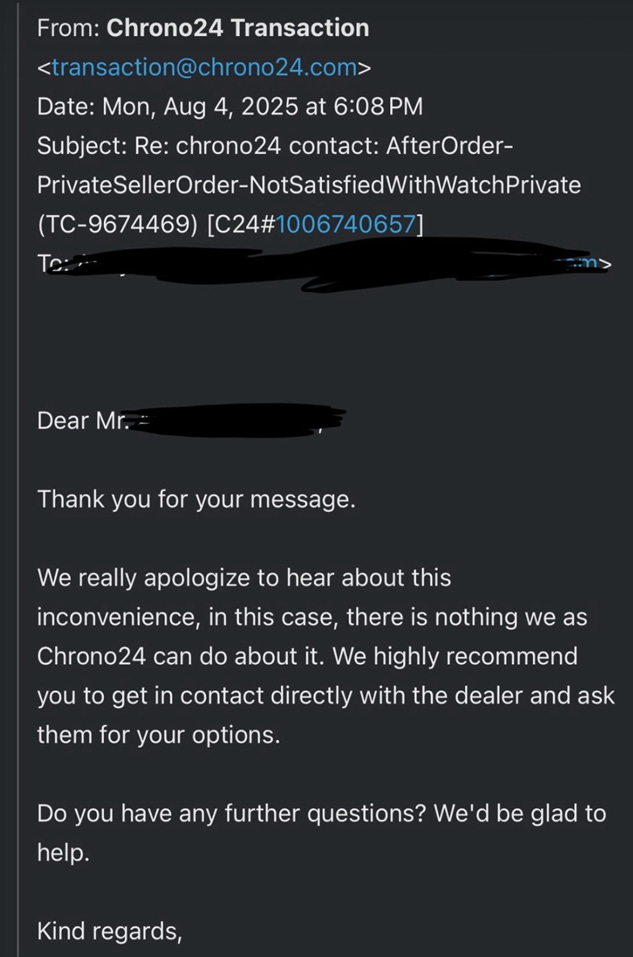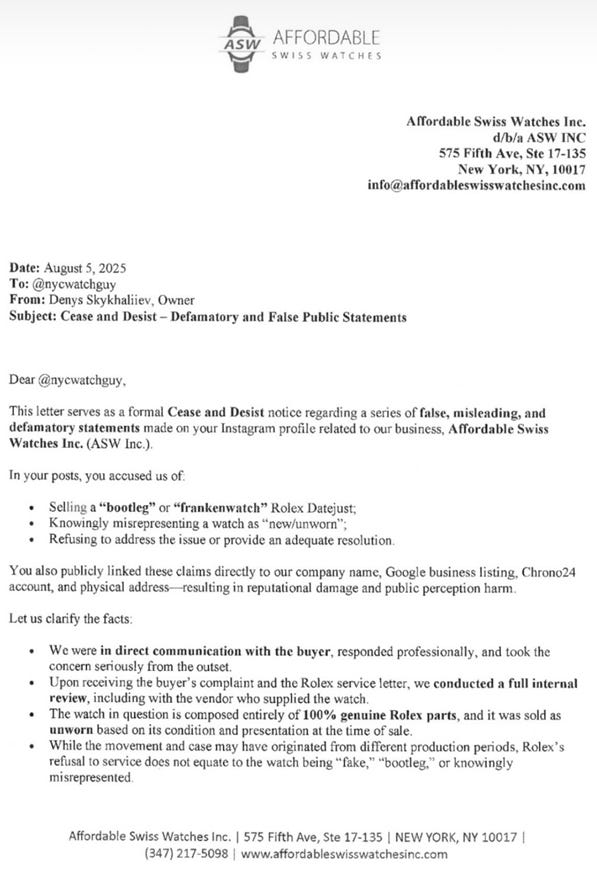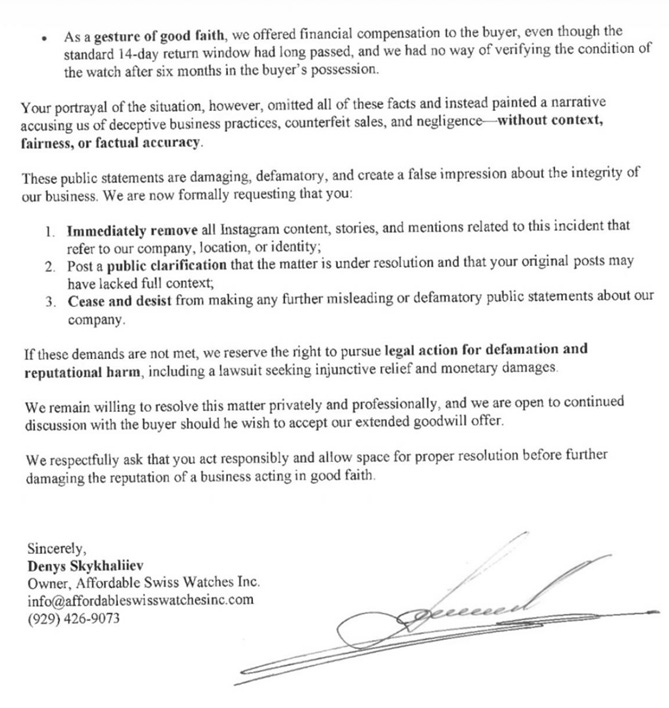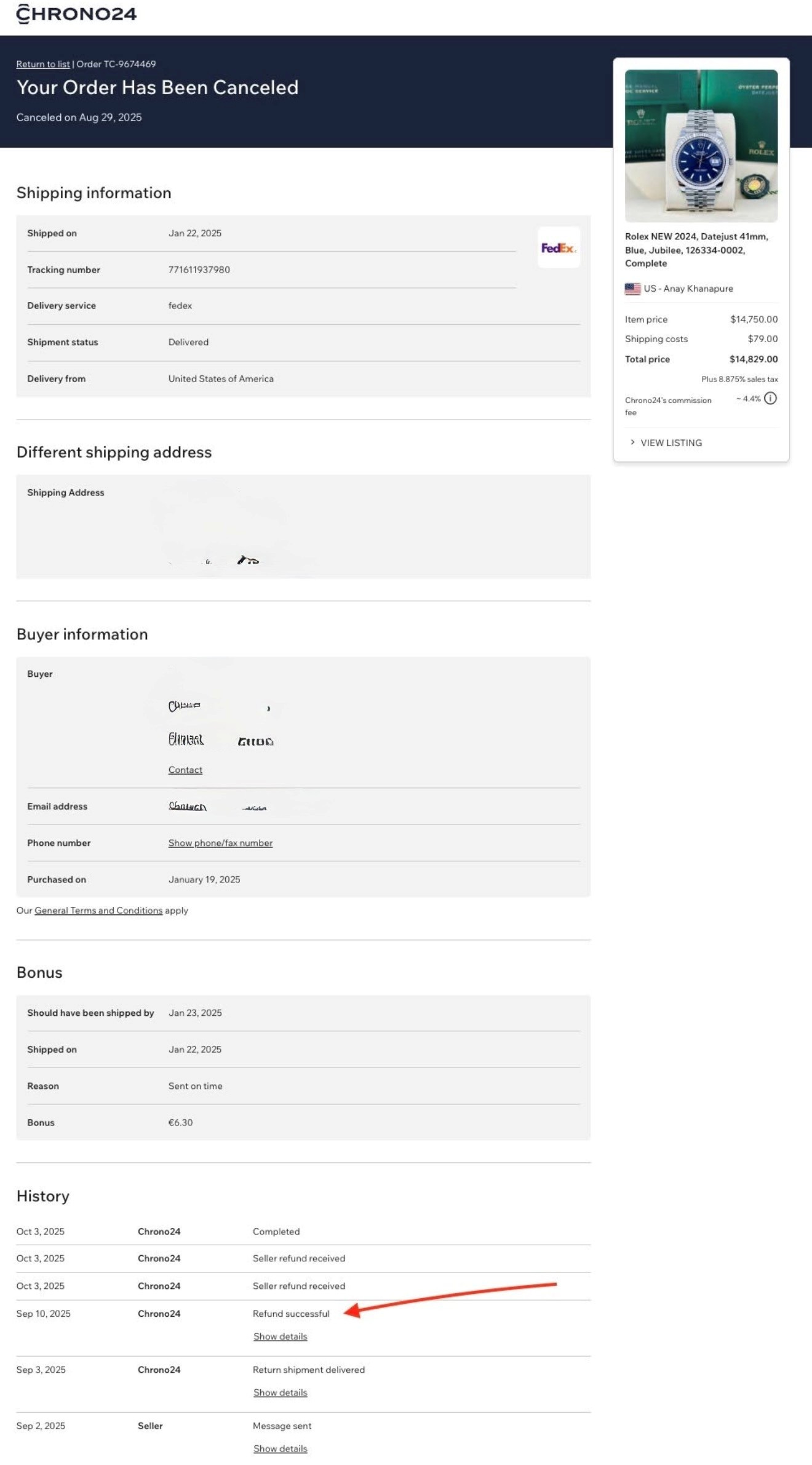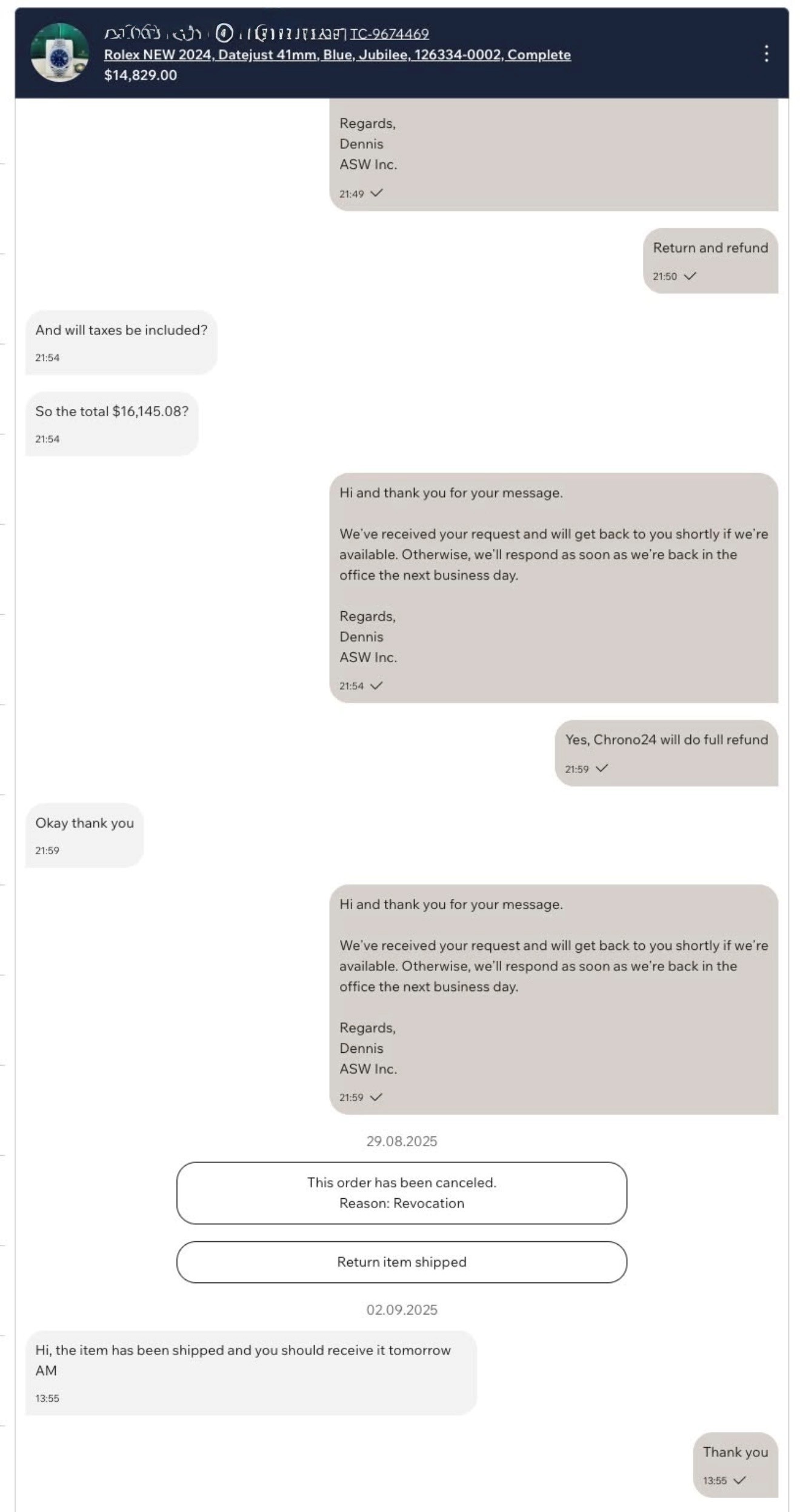SDC Weekly 107; Porsche’s Watch Gamble; Chrono24 Deal Gone Wrong; Market Price Dilemmas
39% Tariffs May Bifurcate the Watch Market, Inside the Watchmaking Journey of Dann Phimphrachanh, Arthur Schopenhauer’s parable about porcupines, Why we spend $350 billion on bottled water and more!
🚨 Hello again, and welcome back to SDC Weekly!
Estimated reading time: ~23 mins
Admin note: Unofficial Editor is recovering after trying to explain the appeal of a 36mm watch to a group of angry YouTubers. While he recovers, click here to read this post online and ensure you see all corrections made after publishing.
If you’re new to SDC, welcome! If you have time to kill, find older editions of SDC Weekly here, and longer posts in the archive here.
🤬 Chrono24 Deal Gone Wrong
The watch world can be brutal sometimes, and for one unfortunate New Yorker, that rude awakening came via a Chrono24 purchase that turned into a case study on why platform accountability matters more than five-star Google reviews.
I saw this story on NYCWatchGuy’s Instagram story, and I thought it deserved some further attention. The tale involves a young collector buying his first proper watch. After months of research, he settled on a Rolex Datejust 41 and found one on Chrono24 listed by Affordable Swiss Watches Inc - a New York dealer sporting an impressive five-star Google rating, and a Chrono24 Trusted Seller accreditation.
The listing promised a new piece; you can see the full transaction for yourself:
Everything seemed okay, the watch arrived exactly as described, papers in order, and everything looked legitimate. A few months later, the watch started acting up, and given it was a 2024 Rolex under warranty, he sent it in to Rolex for what should be routine service.
Then Rolex refused to service the watch!
Turns out the movement dates back to 2021, but the watch case was manufactured in 2024. In other words, he was sold a frankenwatch - essentially a bootleg Rolex assembled from mismatched components.
Chrono24’s response was, perhaps predictably, useless:
Translation: “Good luck, buddy. Your problem now.” They might as well say “Go fvck yourself,” right? What exactly is the purpose of having a Trusted Seller accreditation anyway? Anyway, perhaps the dealer will do the right thing, he thought.
After the buyer contacted Affordable Swiss Watches Inc directly, explaining they had sold what amounts to an unserviceable counterfeit, the dealer’s alleged offer was a whopping $750 in compensation.
This is a dealer with a 5-star rating, allegedly only offering $750 to “make good” on selling someone a franken Rolex that Rolex themselves refuse to service. The audacity is breathtaking, if this is true.
Note: I have not seen any copies of the communication between the dealer and the watch owner, so if the dealer sees this post and would like to respond, I will happily update this post. Given the facts presented, the correct thing for the dealer to do, would be to take the watch back, and refund this kid. No questions asked. I still hope they make this right.
Regardless, as NYCWatchguy rightly pointed out, this incident damages more than just one collector’s wallet and trust. When young collectors get burned this badly on their first major purchase, they often leave the hobby entirely. The buy the seller mantra becomes meaningless when supposedly ‘trusted’ platforms provide zero protection and dealers themselves appear to operate with impunity.
I suppose a new lesson here is that Google reviews also mean nothing, since dealers can manipulate ratings but still sell unserviceable watches. I have nothing more to add beyond: caveat emptor.
Have you experienced similar issues with dealers on Chrono24? Might as well name and shame them, so others can avoid at all costs.
Update (6 August 2025): The dealer responded to NYCWatchguy:
What to make of this? Maybe this dealer bought the watch in good faith, and never realised the movement and case originated from different production runs. And maybe the dealer’s perspective might be that a customer is trying to run an elaborate scam here. But let’s be honest, if someone wanted to defraud a dealer, would they really go through Chrono24, months of ownership, a Rolex service attempt, and then public shaming via an Instagram meme account? To what end, exactly?
As far as I’m concerned, dealers cannot reasonably expect consumers to send every watch to the manufacturer for verification immediately after a purchase. Not to mention, this sort of situation is precisely why people buy from Chrono24 Trusted Sellers - I’m guessing this title offers the buyer some peace of mind. Based on this story we now know, this is unfounded faith in a totally useless platform.
I also accept that dealers operating in the grey market often work through multiple intermediaries, and expecting them to “guarantee the provenance of every component” is perhaps unrealistic; but that makes their responsibility to buyers even more important when things go wrong. This dealer should eat the loss, or take this watch back to the person he bought it from, and make them eat the loss. There is no world in which the consumer should be penalised for fvckery which took place further up the grey market chain.
The dealer’s response, while understandable from a business perspective, really does miss a critical point. Whether the watch was sold with malicious intent or innocent ignorance, the customer ends up with an unserviceable Rolex. The intent behind the sale matters far less than the outcome for the buyer.
If we accept that dealers can operate in good faith while still selling frankenwatches they didn’t realise were problematic, then we must also accept that dealers should bear responsibility when these issues surface.
The dealer’s response also reiterates Chrono24’s fundamental uselessness in these situations. When disputes arise, the platform offers zero protection or resolution mechanisms. They collect fees while providing essentially no value when things go wrong.
As for Affordable Swiss Watches - they had an opportunity to demonstrate industry leadership by simply taking the watch back and eating the loss, or taking it back to wherever they bought it from, to let those wholesalers eat the loss. Instead, they’ve chosen legal intimidation, and that tells you everything you need to know about their priorities.



